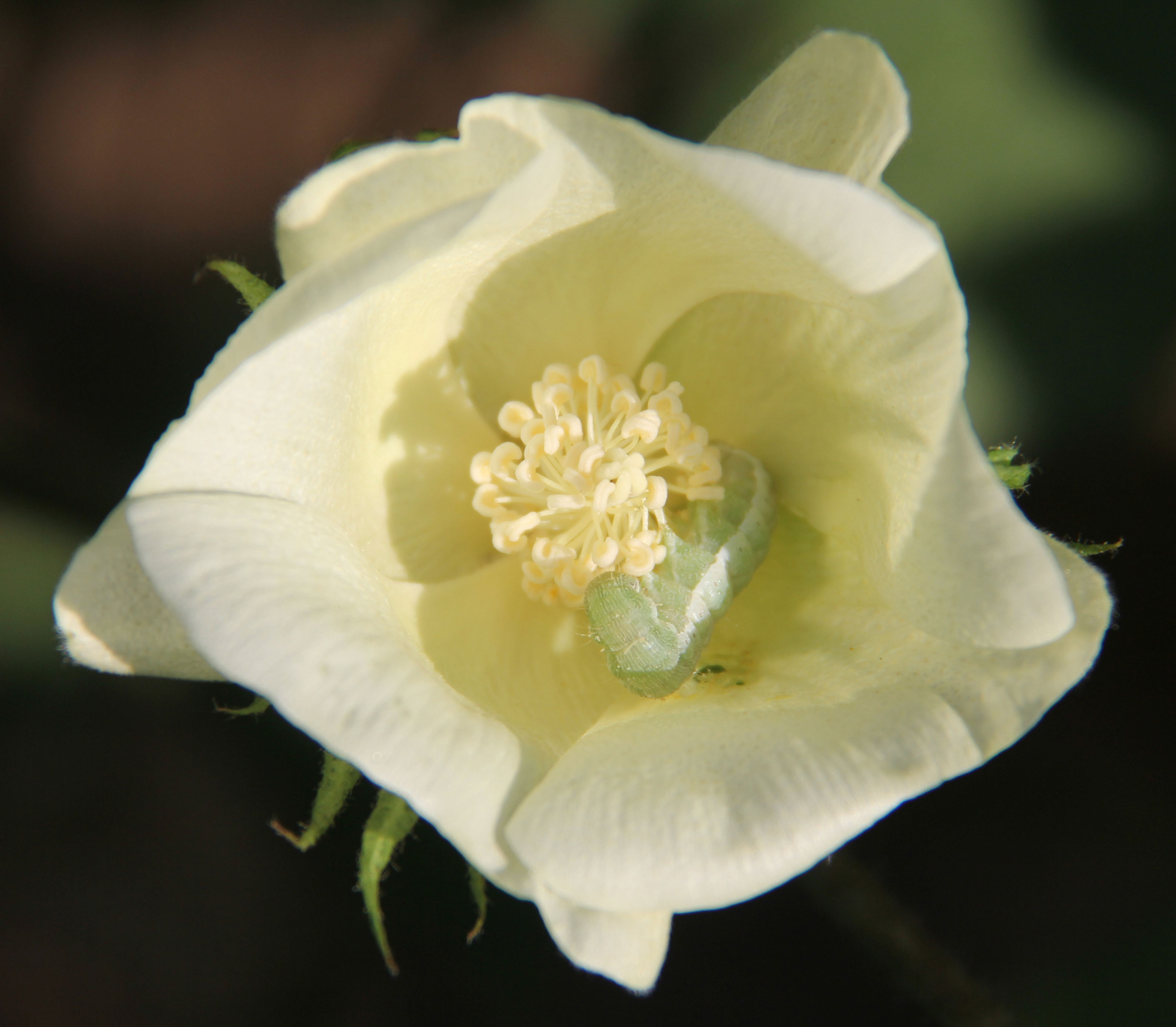分享到
Major Crop Pest Carries 'Good' Virus Protecting it Against Biopesticides
Influenza, smallpox, dengue and, of course, Ebola, are all prime examples of viruses that can devastate human populations. But, with the advent of modern molecular technologies and the discovery of new microbes, it is now becoming clear that not all viruses are bad.
A new study, published this week in the journal PLoS Pathogens, led by Chinese scientist Prof. Kongming Wu from the Institute of Plant Protection of CAAS, and co-authored by Professor Ken Wilson from the Environment Centre at Lancaster University, discovered a virus which is beneficial to its host- the global insect crop pest the Old World cotton bollworm moth (Helicoverpa armigera).
The cotton bollworm is major migratory pests of economically-important crops throughout Africa, Asia, Europe, Australia and South America, including cotton, maize, wheat, soybean and vegetables. It is currently widely controlled by the biopesticides Bacillus thuringiensis (Bt) toxin and other biopesticides, such as the baculovirus HaNPV. The study shows that cotton bollworm carrying HaDNV-1 were heavier, fatter and developed at a faster rate, and adult females produced more offspring and lived longer. Moreover, densovirus-carrying individuals were more resistant to Bt at low doses, and were more resistant to the HaNPV baculovirus across a range of doses. HaDNV-1 was found to be widespread in wild populations of cotton bollworm adults (>67% prevalence between 2008 and 2012). It suggests that the relationship among organisms is complicated in natural ecosystem and also shows new challenges to the biocontrol method. These results show new insight in the relationship between viruses and its insect host, and have important implications for revealing the co-evolution of species in agricultural ecosystem and developing novel theory and method for pest management.

Cotton bollworm caterpillar feeding on a flowering cotton plant
A new study, published this week in the journal PLoS Pathogens, led by Chinese scientist Prof. Kongming Wu from the Institute of Plant Protection of CAAS, and co-authored by Professor Ken Wilson from the Environment Centre at Lancaster University, discovered a virus which is beneficial to its host- the global insect crop pest the Old World cotton bollworm moth (Helicoverpa armigera).
The cotton bollworm is major migratory pests of economically-important crops throughout Africa, Asia, Europe, Australia and South America, including cotton, maize, wheat, soybean and vegetables. It is currently widely controlled by the biopesticides Bacillus thuringiensis (Bt) toxin and other biopesticides, such as the baculovirus HaNPV. The study shows that cotton bollworm carrying HaDNV-1 were heavier, fatter and developed at a faster rate, and adult females produced more offspring and lived longer. Moreover, densovirus-carrying individuals were more resistant to Bt at low doses, and were more resistant to the HaNPV baculovirus across a range of doses. HaDNV-1 was found to be widespread in wild populations of cotton bollworm adults (>67% prevalence between 2008 and 2012). It suggests that the relationship among organisms is complicated in natural ecosystem and also shows new challenges to the biocontrol method. These results show new insight in the relationship between viruses and its insect host, and have important implications for revealing the co-evolution of species in agricultural ecosystem and developing novel theory and method for pest management.

Cotton bollworm caterpillar feeding on a flowering cotton plant
More details are available on the bellow links:
http://www.plospathogens.org/article/info:doi/10.1371/journal.ppat.1004490
http://www.plospathogens.org/article/info:doi/10.1371/journal.ppat.1004490
By Pengjun Xu
xupengjun@163.com
xupengjun@163.com
Latest News
-
 Apr 18, 2024Opening Ceremony of the Training Workshop on Wheat Head Scab Resistance Breeding and Pest Control in Africa Held in CAAS
Apr 18, 2024Opening Ceremony of the Training Workshop on Wheat Head Scab Resistance Breeding and Pest Control in Africa Held in CAAS -
 Apr 03, 2024IPPCAAS Co-organized the Training Workshop on Management and Application of Biopesticides in Nepal
Apr 03, 2024IPPCAAS Co-organized the Training Workshop on Management and Application of Biopesticides in Nepal -
 Mar 28, 2024Delegation from the School of Agriculture and Food Science of University College Dublin, Ireland Visit to IAS, CAAS
Mar 28, 2024Delegation from the School of Agriculture and Food Science of University College Dublin, Ireland Visit to IAS, CAAS -
 Mar 25, 2024Director of World Food Prize Foundation visited GSCAAS
Mar 25, 2024Director of World Food Prize Foundation visited GSCAAS -
 Mar 20, 2024Institute of Crop Sciences (ICS) and Syngenta Group Global Seeds Advance Collaborative Research in the Seed Industry
Mar 20, 2024Institute of Crop Sciences (ICS) and Syngenta Group Global Seeds Advance Collaborative Research in the Seed Industry
